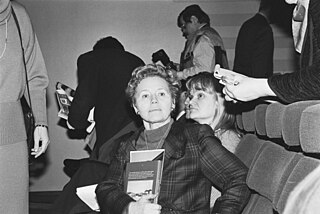 W
WEeva Irmeli Ahtisaari is a Finnish teacher and historian who was the First Lady of Finland from 1994 to 2000. She is married to the 10th President of Finland Martti Ahtisaari. Their son is the musician Marko Ahtisaari.
 W
WKarl August Bomansson, was a Finnish historian and archivist. Between 1870 and 1883 he was chief archivist at the National Archives of Finland. From 1862 he was associate professor in history at Helsinki University.
 W
WFredrik Cygnaeus was a Finnish poet, art critic and collector, docent of history and university professor of aesthetics and literature. Cygnaeus was an influential figure in Finnish art and literature, contributed to Finnish nationalism and was a central person in the Fennoman movement (Fennomani).
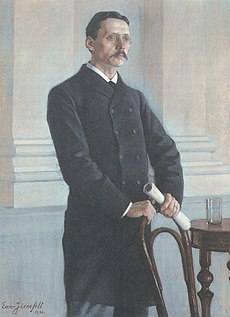 W
WJohan Richard (J.R.) Danielson-Kalmari was a Finnish Senator, professor of history, State Councillor and one of the leaders of the Finnish Party. He was a Senator without portfolio in the Hjelt Senate from 1 August 1908 to 13 November 1909.
 W
WMax Robert Engman was a Finnish historian and translator.
 W
WSeikko Aarne Väinämö Eskola is a Finnish historian and debater. Eskola was 1974–1997 assistant professor in general history at Tampere University. He was editor in chief for the cultural journal Kanava 1979–1993.
 W
WGeorgīĭ Vasilevich Forsten was a Finnish historian and professor at Saint Petersburg University in Russia. He was a specialist in the history of Scandinavia and the Baltic region and one of the founders of research into Scandinavian history in Russia. Later he turned to the Reformation and the history of humanism in Germany.
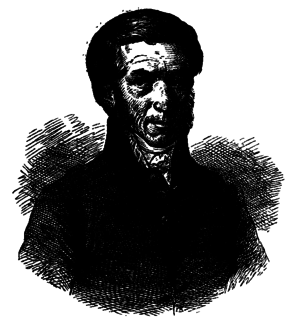 W
WCarl Axel Gottlund was a Finnish explorer, collector of folklore, historian, cultural politician, linguist, philologist, translator, writer, publisher and lecturer of Finnish language at the University of Helsinki. He was a colorful cultural personality and one of the central Finnish national awakeners and — later — one of the leading dissidents at the same time.
 W
WKustavi (Gustaf) Grotenfelt was a Finnish historian, professor at the University of Helsinki and politician. He was a member of the Diet of Finland from 1888 to 1900 and from 1904 to 1906 and of the Parliament of Finland from 1908 to 1909. He represented the Young Finnish Party.
 W
WMartti Johannes Häikiö, is a Finnish historian and writer. In 1978 Häikiö became an associate professor in political history at Helsinki University. He has also been editor in chief and columnist in many journals and newspapers.
 W
WRafael Hertzberg was a Finland-Swedish writer, translator, historian, businessman, inventor and publicist.
 W
WKarl Emil Ferdinand Ignatius was a Finnish historian, the head of the Main Office of Statistics and a Senator.
 W
WToivo Immanuel Itkonen was a Finnish historian and linguist, specializing in the Sami languages and the history of the Sami people.
 W
WKaarle Jalmari Jaakkola was a Finnish historian and a professor of Finnish history at the University of Helsinki between 1932 and 1954. Jaakkola is known as a historian who primarily researched medieval history and sought to put forth that Finland existed as an entity already during that period. Some of Jaakkola's hypotheses are today considered to be overtly nationalist and outdated, but his influence during his lifetime remains undisputed.
 W
WMax Jakobson was a Finnish diplomat and journalist with Finnish-Jewish descent. Jakobson was an instrumental figure in shaping Finland's policy of neutrality during the Cold War.
 W
WMauno Jokipii was a Finnish professor at the University of Jyväskylä in history specializing in World War II. He was a thorough investigator and a prolific author. Among his works were studies of the local history of Jyväskylä and the university and historical province of Satakunta.
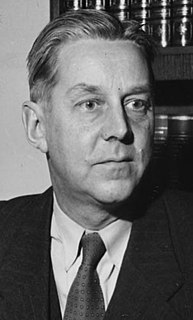 W
WEino Kaarlo Ilmari Jutikkala, until 1931 Rinne, was a Finnish historian, and professor of history at the University of Helsinki from 1950 to 1974. He had an exceptionally long and prolific career, and is considered one of the most important Finnish historians of the 20th century.
 W
WEinar Wilhelm Juva was a Finnish historian, professor at Turku University 1920–1955. His surname until 1935 was Juvelius. He was born in Raahe.
 W
WMikko Einar Juva was a Finnish historian, theologian and archbishop.
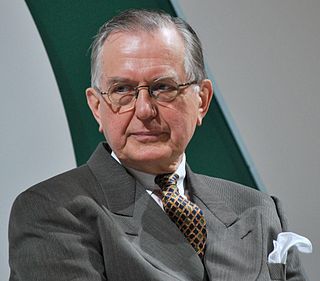 W
WMatti Klinge is a Finnish historian.
 W
WLaura Kolbe is a Finnish professor of European history at the University of Helsinki. She is also a Helsinki City Council member, representing the Centre Party and the Inspector of Eteläsuomalainen osakunta, student nation representing Southern Finland.
 W
WArto Pekka Luukkanen is a Finnish historian and social scientist, specialising in Russian and Eastern European research at the University of Helsinki Renvall Institute.
 W
WAarno Henrik Maliniemi was a Finnish historian, professor in church history at Helsinki University 1945–1960.
 W
WCarl Henrik Meinander, is a Finnish historian, PhD 1994. From 2002 Meinander is the keeper of the Swedish-speaking professorship in history at Helsinki University. He is the son of the famous archaeologist Carl Fredrik Meinander.
 W
WHeikki Nurmio (1887-1947) was a Finnish jäger and writer. He is remembered for writing the lyrics for "Jääkärien marssi" composed by Jean Sibelius in 1917.
 W
WYrjö Fredrik Nurmio was director of the National Archives of Finland 1949–67 and an acting professor in history in 1949. In 1949 he also received the honorary title of professor. He was a brother to Heikki Nurmio.
 W
WJaakko Paavolainen, was a Finnish historian, PhD 1966. He became professor in history at the University of Turku 1986–1989.
 W
WToivo Johannes Paloposki was a Finnish archivist and historian.
 W
WHenrik Gabriel Porthan was a professor and rector at the Royal Academy of Turku. He was a scholar sometimes known as The Father of Finnish History.
 W
WPäivi Setälä was a Finnish historian and professor who influenced different areas of Finnish cultural life. She was one of the best advocates of Finnish women's research. In 1991, she became the first female professor of Women's Studies in Finland. She received the State Disclosure Award, Finnish Writers' Association's Warelius Award, and JV Snellman Award.
 W
WJuha Sihvola was a Finnish philosopher and historian. He was a University professor of general history from 2000, and part of The Academy of Finland's Centre of Excellence program upon Philosophical Psychology, Morality and Politics, serving as the Deputy Director of the Centre of Excellence from 2008. In the years 2004–2009, he was the Director of Helsinki Collegium for Advanced Studies.
 W
WAlma Söderhjelm was a Swedish-speaking Finnish historian and the first female professor in Finland.
 W
WKari Valtteri Tarkiainen is a Finnish historian and archivist, who served as the national archivist of Finland 1996–2003. He is a grandson of the scholar Viljo Tarkiainen and his wife, writer Maria Jotuni.
 W
WEugène Napoleon Tigerstedt was born April 28, 1907 in Warsaw and died June 27, 1979 on the island of Samos in Greece. He was a Finnish-Swedish academic. In his lifetime, Tigerstedt was one of the leading and most respected literary historians in Scandinavia and is best known internationally for his contributions to Plato scholarship.
 W
WZachris Topelius was a Finnish author, poet, journalist, historian, and rector of the University of Helsinki who wrote novels related to Finnish history in Swedish.
 W
WErkki Sakari Tuomioja is a Finnish politician and a member of the Finnish Parliament. From 2000 to 2007 and 2011 to 2015, he served as the Minister for Foreign Affairs. He was President of the Nordic Council in 2008.
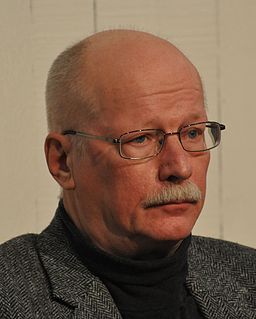 W
WTimo Juhani Vihavainen is a Finnish historian and a professor of Russian Studies at the University of Helsinki. He has written extensively on Russian and Finnish history. Vihavainen graduated as a Master of Philosophy in 1970, a Licentiate in Philosophy in 1983, a Doctor of Philosophy degree in 1988 and a Docent in Russian history in 1992. He is a member of the Finnish Academy of Science and Letters since 2009.
 W
WIlkka Juhani Virta is a Finnish rector and historian. Ilkka Virta has worked as a rector of the Pyhäjärvi Region Adult' College, the Finnish Adult Education Centre of Turku, the Loimaa Workers' College and the Auranlaakso Citizens' College.
 W
WKeijo Aarre Virtanen, is a Finnish historian, PhD 1980. In 1970 Virtanen was affiliated with the University of Turku, where he became professor 1990 in cultural history. He served as the Rector of the University of Turku in 1997–2012.
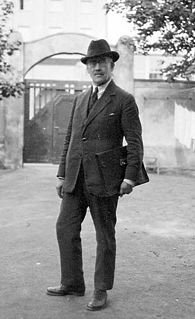 W
WKaarle Väinö Voionmaa was a Finnish professor, diplomat, member of the parliament of Finland, senator, minister and chancellor. He also was one of the most influential politicians during the early times of independent Republic of Finland. He was a Social Democrat.
 W
WBaron Yrjö Sakari Yrjö-Koskinen was a friherre, senator, professor, historian, politician and the chairman of the Finnish Party after Johan Vilhelm Snellman. He was a central figure in the fennoman movement. His original name was Georg Zakarias Forsman and his family from his father's side originated from Sweden. He later fennicized his name to Yrjö Sakari Yrjö-Koskinen.